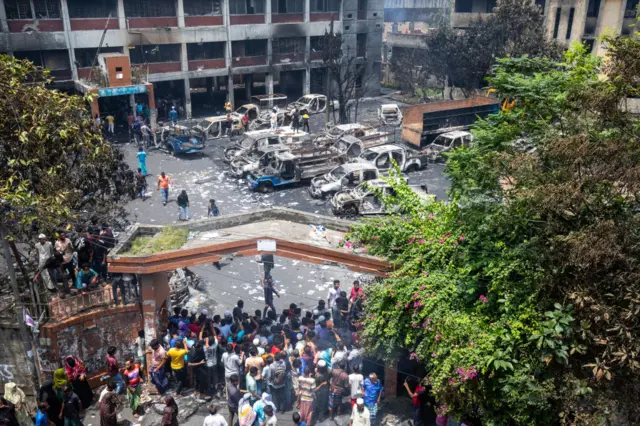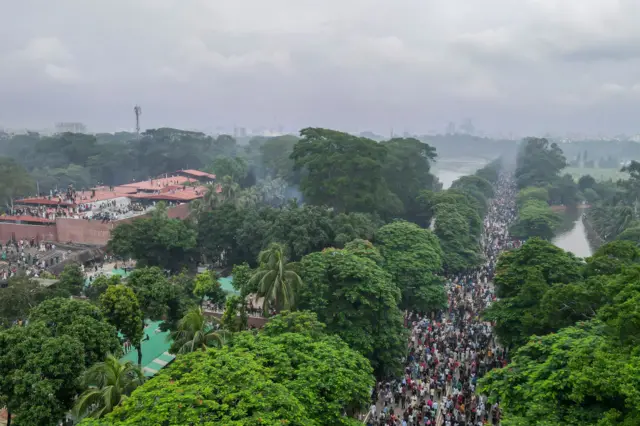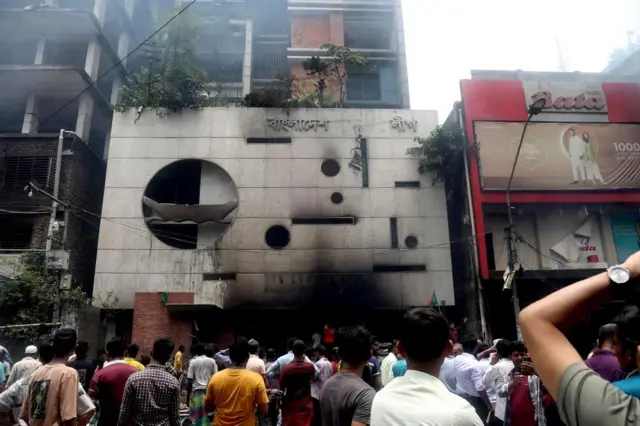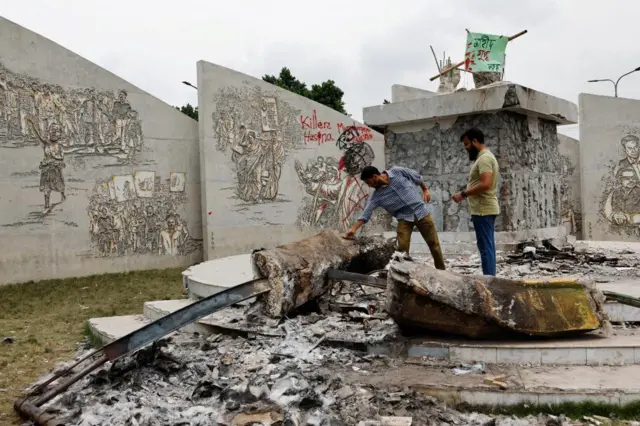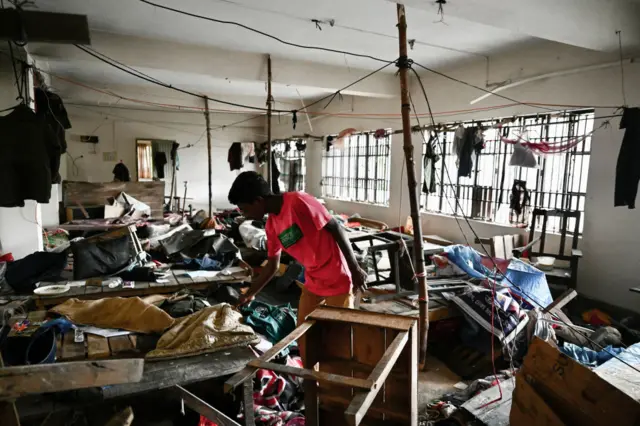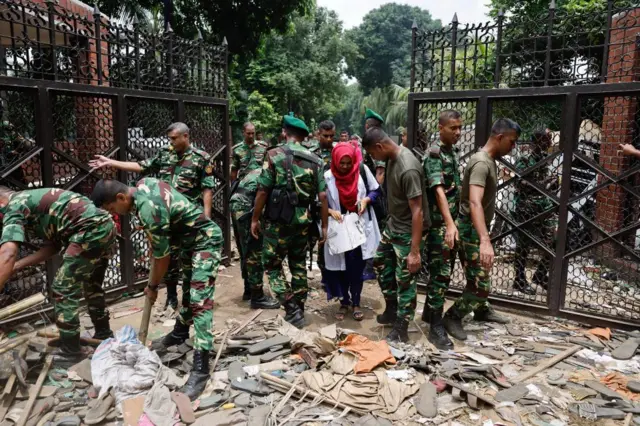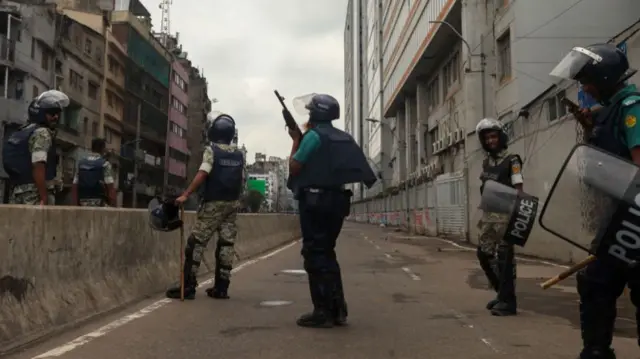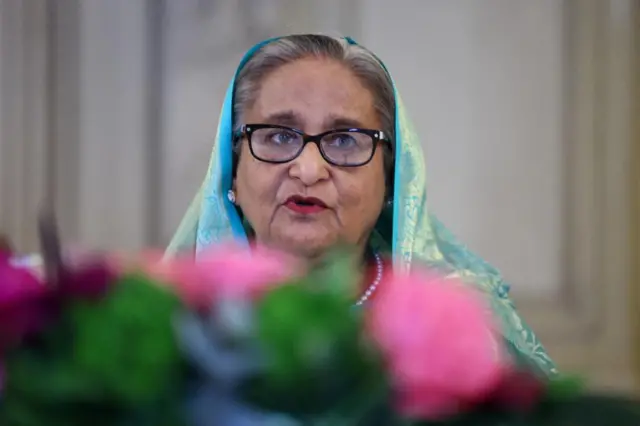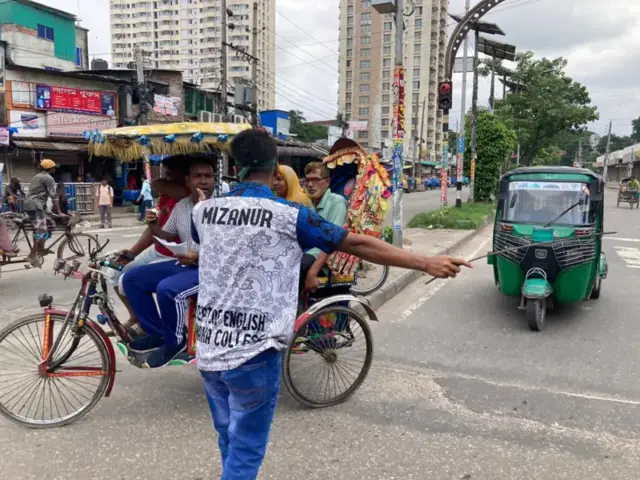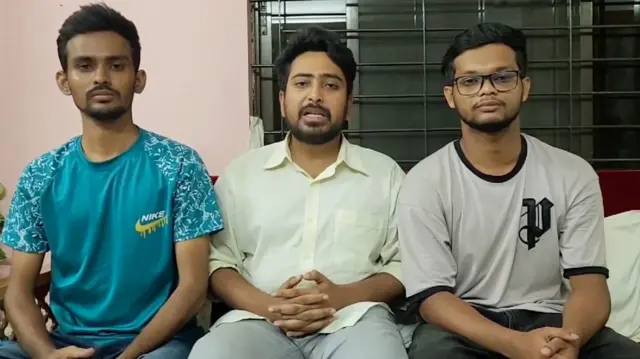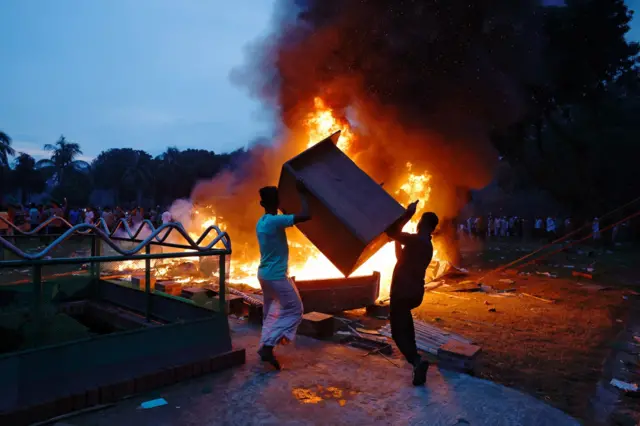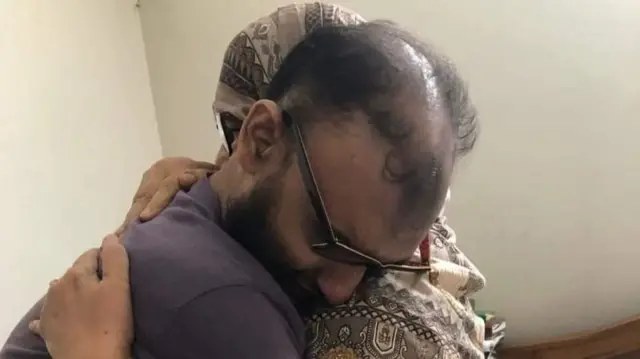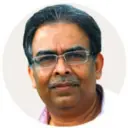Bangladesh awaits its futurepublished at 14:19 BST 6 August 2024
Flora Drury
BBC Asia online desk
We are pausing our coverage of events in Bangladesh for today, with the country waiting to see what will happen next.
With parliament dissolved, the way is clear for an interim government to be declared. But as yet, no announcements have been made.
Among civilians, our reporters found optimism mixed with anxiety over the future.
Meanwhile, the future of Sheikh Hasina - the 76-year-old former prime minister who fled Bangladesh for India on Monday - remains unclear.
Thank you for joining us. Today's coverage was bought to you by Yvette Tan, Annabelle Liang, Gavin Butler, Kelly Ng, Jaroslav Lukiv, Soutik Biswas, Vikas Pandey, Meryl Sebastian, Geeta Pandey, Lana Lam, Lipika Pelham, Jamie Whitehead and me.
You can read more on this story here.
